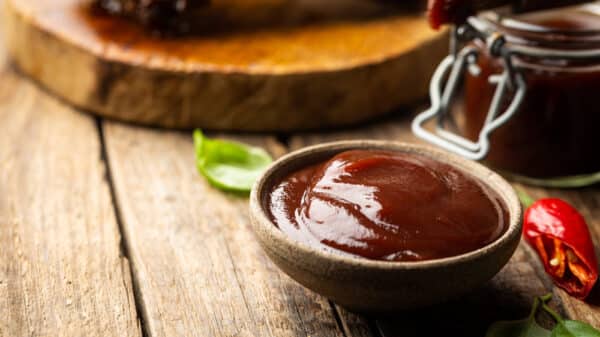Are you unknowingly fueling inflammation with your food choices? You’re not alone, and it’s more common than you might think. Many of us reach for seemingly harmless snacks or meals, only to discover that they could be contributing to that stubborn belly fat. According to Tara Collingwood, MS, RDN, CSSD, LD/N, ACSM-CPT—a Board Certified Sports Dietitian and co-author of the *Flat Belly Cookbook for Dummies*—certain everyday foods can promote chronic inflammation, increase insulin resistance, and disrupt hormonal balance, all of which may lead to unwanted weight gain around your midsection.
Let’s break down some of these sneaky culprits that might be lurking in your kitchen.
Refined Carbohydrates (Think White Bread, Pasta, Pastries)
Refined carbs, like those fluffy white rolls or creamy pasta dishes, might seem appealing, but they pack a hidden punch. These foods have been heavily processed and stripped of their fiber and essential nutrients, leading to more trouble than you’d expect. When you consume refined carbs, your blood sugar spikes, which triggers your body to store fat—especially that pesky visceral fat deep in your belly. Over time, this creates an atmosphere ripe for inflammation. So, next time you’re eyeing that sandwich or slice of cake, consider how those refined carbs might be silently affecting your health.
Added Sugars (Soda, Candy, Baked Goods)
We all love a sweet treat now and then, but it’s crucial to be aware of just how much added sugar sneaks into our diets. From sugary sodas to enticingly iced cupcakes, these foods not only delight your taste buds but can also wreak havoc on your body. Consuming high levels of added sugars leads to fat accumulation, largely because they promote insulin resistance and inflammation. One sip or bite might not feel significant, but as we munch and sip our way through our daily lives, those hidden sugars add up and can contribute to unwanted weight gain.
Ultimately, becoming more mindful of what you eat can create a positive shift in your overall health. You don’t need to eliminate all indulgent treats, but being aware of their impact can help you make more informed choices. Start replacing refined carbs and sugary snacks with whole grains and natural sweeteners; your body will thank you in the long run.Added sugars are lurking in many of our favorite treats—think soda, candy bars, and baked goods. While they may satisfy our sweet tooth momentarily, these sugars come with a hefty price tag for our health. When we overindulge, particularly on fructose, it can create a chain reaction in our bodies that leads to fatty liver, insulin resistance, and a whole host of inflammatory issues. It’s not just about the immediate sugar rush; these compounds are sneaky contributors to unwanted belly fat and can throw our metabolic systems into chaos.
Next on the chopping block are trans fats, often found in partially hydrogenated oils. These are among the most infamous culprits of unhealthy eating habits. Although many places have banned them, they still make surprising appearances in various processed foods. The reason they’re problematic lies in their ability to raise inflammatory markers in the body, essentially landing them as direct adversaries to our waistlines. Those who regularly consume trans fats may find themselves accumulating abdominal fat, which isn’t just an aesthetic concern but also a serious health risk.
Moving on, let’s talk about processed meats like bacon, sausages, and hot dogs. These savory delights are often high in preservatives and sodium, along with a troubling substance known as advanced glycation end products (AGEs). AGEs are linked to increased inflammation in the body and are associated with a myriad of health concerns, including obesity and heart disease. If you’re a fan of these quick, flavorful options, it’s important to understand that indulging too often can have long-term consequences for both your waistline and overall health.
And let’s not overlook our love for fried foods, whether it’s crispy French fries or golden fried chicken. As delicious as they may be, fried foods can wreak havoc on our bodies. The oils used in frying often contain high levels of unhealthy fats, contributing to inflammation and weight gain. It’s the irresistible crunch that’s easy to crave, but it’s worth considering the toll it can take on your overall health—and waistline.
Understanding the impacts of these foods can empower you to make better choices that align with your health goals. It’s not about perfection but about finding balance and enjoying food without compromising your well-being. If these insights resonate with you, remember that small, mindful changes can lead to positive, lasting transformations in your eating habits and health journey.Fried foods, like crispy fried chicken and golden French fries, may be mouthwatering, but they come with a hidden cost to our health. The oils used for frying are often loaded with unhealthy omega-6 fats and trans fats, leading to inflammation within the body. This inflammation can be sneaky; it promotes oxidative stress, which damages our cells over time, and can contribute to unwanted fat accumulation. If you’ve ever felt sluggish or bloated after indulging in a plate of fries or fried chicken, this could be why. These foods can leave you feeling heavy and out of sorts, which is frustrating when all you want is to enjoy a favorite comfort dish.
Now, let’s talk about alcohol, particularly beer and those sweet cocktails that can seem so harmless. The reality is, they can be quite inflammatory, too. When consumed in excess, alcohol can upset the delicate balance of gut bacteria and strain our liver. This disruption doesn’t just affect how we digest food. It can lead to the unwelcome addition of belly fat and even slow down our metabolism. So, that celebratory beer or cocktail can quickly turn into a ticking health bomb, especially as stress levels rise and we lean on these drinks more for relief.
And here comes the tricky part—artificial sweeteners. We often opt for these sugar substitutes with the intention of being healthier. However, substances like aspartame and sucralose can be inflammation triggers, too. Even if the package claims “zero calories,” your body may not react too kindly. Studies suggest that these products can disrupt gut health and alter how we process sugar in the long run. If you’re someone who’s made the switch to diet sodas or low-calorie snacks, it might be a good time to reassess how those options make you feel—often, what seems like a healthful choice might actually leave you feeling less than your best.
The journey to a healthier diet doesn’t just involve cutting out these inflammatory foods. It’s about creating a balance that makes you feel good, mentally and physically. Finding alternatives you enjoy, whether it’s roasting vegetables for that crispy bite or mixing up homemade cocktails with fresh ingredients, can help you reclaim some joy and wellness in your eating habits. Knowing what fuels your body and fuels the inflammation can empower you to make better choices in both daily meals and those special moments that deserve a celebration. You’re not alone in this journey; many of us are figuring it out, little by little, one meal at a time.Artificial sweeteners often appear to be a guilt-free alternative when you’re trying to cut back on sugar. After all, they promise sweetness without the calories. Yet, recent studies suggest that these seemingly harmless additives might have a darker side—one that can impact your health more than you realize.
Here’s the lowdown: many artificial sweeteners can disrupt your gut microbiota. This delicate ecosystem of bacteria plays a crucial role in digestion and even influences your cravings and overall metabolic health. If you’ve noticed that certain sweeteners make you feel hungrier or lead to more cravings, you’re not alone. They can confuse your body’s natural signals, leading to fat storage rather than fat loss, especially for those who are sensitive to these substances. If you’ve ever experienced unexplained weight gain or persistent cravings despite your best efforts to eat healthier, it’s worth considering what role these sweeteners may be playing in your diet.
Next on our list of sneaky culprits? Vegetable oils, particularly those high in omega-6 fatty acids, like corn, soybean, and sunflower oil. You might be surprised to learn that these oils are staples in many processed foods and restaurant meals. While they’re often marketed as heart-healthy options, the reality is a bit different. When consumed in large quantities without an adequate balance of omega-3s, they can promote inflammation throughout your body.
So, what’s the big deal with inflammation? Chronic inflammation can contribute to a range of health issues, including weight gain, particularly around the belly area. If you find yourself feeling bloated or sluggish, it could be time to reassess the oils you’re using in your cooking or opting for in packaged foods. Making subtle shifts towards healthier options like olive oil, avocado oil, or nut-based oils can not only enhance your meals but can also steer you away from this inflammation trap.
Mindful changes in your diet don’t have to be overwhelming. Even small steps, like swapping out your vegetable oils or opting for whole foods over processed options, can set you on a better path. You’re not just fueling your body; you’re also nurturing your wellness journey. Remember, every choice adds up, and by prioritizing your health, you can feel more energized and connected to your body’s needs.One key takeaway from nutrition specialist Collingwood is to keep your diet focused on reducing inflammation and belly fat. It’s a common struggle for many, and knowing where to start can feel overwhelming. But don’t worry; it doesn’t have to be complicated. By incorporating whole foods into your meals, you’re not just making healthier choices; you’re fueling your body with the essentials it needs. Think fresh fruits and vegetables, whole grains, and lean proteins.
A focus on higher fiber intake is especially vital. Fiber doesn’t just help with digestion—it keeps you feeling fuller for longer, which can naturally curb those cravings for unhealthy snacks. Foods like beans, lentils, whole grain bread, and oats are not only fiber-rich but also versatile options that can easily fit into your daily meals.
And when it comes to fats, making the right choices can make all the difference. Opt for healthy fats such as those found in olive oil, nuts, and fatty fish like salmon. These fats not only contribute to heart health but can also enhance your meals, making them deliciously satisfying.
Incorporating these dietary changes might seem small, but they can lead to significant improvements in how you feel. By being mindful of the foods you eat and opting for ingredients that promote health rather than inflammation, you’re setting yourself up for a more energetic and vibrant life. So, take it one meal at a time, and you’ll be amazed at how these simple adjustments can lead to a feeling of well-being and a healthier body.
Image Source: Pixel-Shot / Shutterstock































